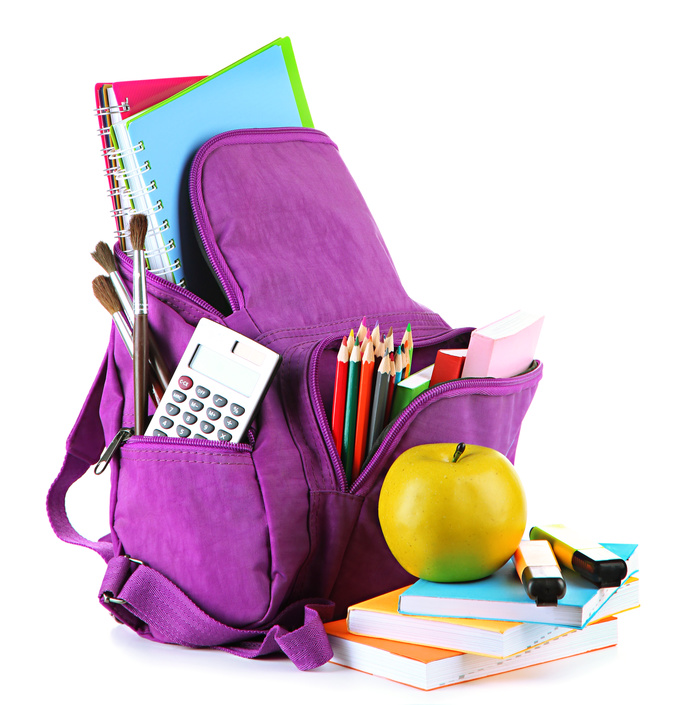 For some students whose families experience food insecurity or hunger, the only consistent meals that they receive may be the ones served at school. As a result, many students experience hunger during school breaks, closures, and weekends. For more than 20 years, local backpack programs have worked to address this issue by sending children home for the weekend with a backpack filled with food. Every weekend, the Feeding America BackPack Program works with over 160 local food banks to provide bags of food to more than 450,000 children. These bags, containing nutritious and easy to prepare foods, ensure that children have enough to eat when they do not have access to free or reduced-price meals at school.
For some students whose families experience food insecurity or hunger, the only consistent meals that they receive may be the ones served at school. As a result, many students experience hunger during school breaks, closures, and weekends. For more than 20 years, local backpack programs have worked to address this issue by sending children home for the weekend with a backpack filled with food. Every weekend, the Feeding America BackPack Program works with over 160 local food banks to provide bags of food to more than 450,000 children. These bags, containing nutritious and easy to prepare foods, ensure that children have enough to eat when they do not have access to free or reduced-price meals at school.
According to the non-profit Hunger Free Colorado, the first backpack program started in 1995 in Little Rock, Arkansas. A school nurse observed that many of the students who came to her were feeling sick or tired because they were hungry and did not have enough to eat at home. She joined forces with her local food bank to launch a program that provided bags with food for children to take home for over the weekend. Since then, food pantries and food banks across the country have begun their own backpack programs to feed hungry children.
A number of studies have assessed these backpack programs, and have provided strong evidence of their success. In 2012, an evaluation of a Feeding America BackPack Program in Illinois found that the program helped a significant number of families go from having low food security to being food secure, and also helped low-income and very low-income parents manage their household budgets. Additionally, some schools observed improved academic performance of students enrolled in the program. The evaluation in Illinois also found that the BackPack Program improved school attendance, particularly on Fridays when backpacks were distributed.
Another study analyzing school backpack programs in Arkansas found that implementation of backpack programs improved eighth grade standardized test scores in literacy and math. This study also found that students who participated in the backpack program were more interested in school, had improved self-esteem, and developed better relationships with faculty and classmates. A literature review by Eastern Kentucky University in 2015 also found that backpack programs can promote higher self-esteem among participating students and can thereby help bolster academic performance and achievement.
Backpack programs are a valuable resource for addressing food insecurity and hunger, while also promoting self-esteem, attendance, and academic performance. For more information on how to find a backpack program in your community, or to get involved, check out the Feeding America website.
Contributors
Rachel Watkin, Cornell University
Katie Baildon, Cornell University
Sources
BackPack Program – FeedingAmerica.org
BackPack Program Starter Toolkit (PDF) – Hunger Free Colorado
BackPack Program Evaluation (PDF) – Barbara H. Fiese, PhD, Family Resilience Center, University of Illinois Urbana Campaign
Rodgers, Y. and Milewska, M. (2007). Food Assistance Through the School System: Evaluation of the Food for Kids Program. Journal of Children and Poverty, 13(1), 75-95.
Sexton, K. and Thompson, S. (2015) Compassion Leads to the Creation of the Backpack Program in Kentucky—RESEARCH. Kentucky Journal of Excellence in College Teaching and Learning, 13.
